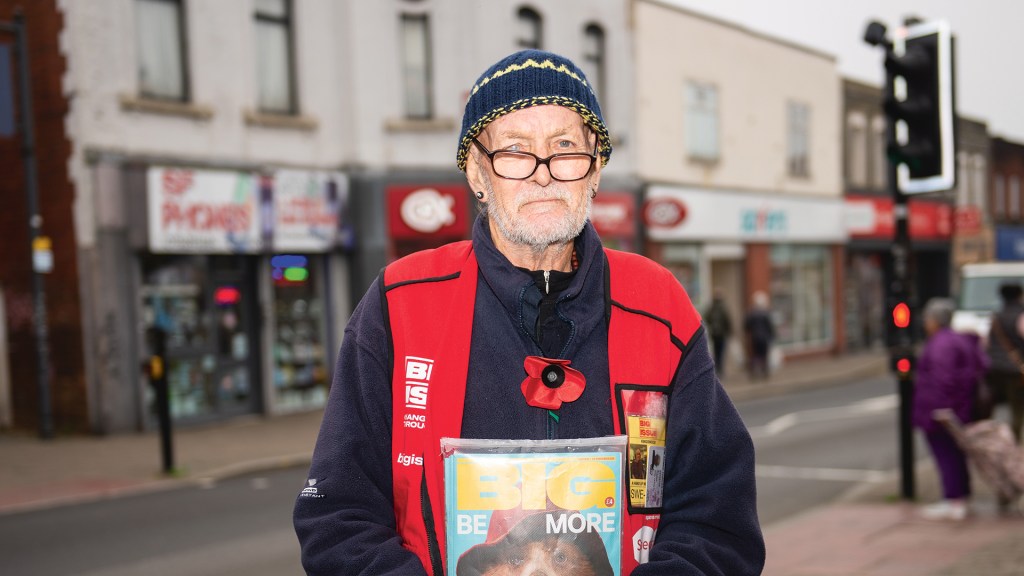Michael Turner, Kings Chase, Kingswood, Bristol
Michael has travelled all across the world for work, and now finds himself settled in the West Country
Image: Frankie Stone
I’ve only been back in the country since December last year. I worked all over the place: Russia, China, India, West Africa working in oil. I had money but the divorce took a lot of that. That and a hedonistic lifestyle: sex, drugs and rock’n’roll.
I was on the street in January and most of February. I survived there but it was very challenging on the street. During the day, we’re still out walking around trying to keep warm. A lot of people sleep during the day and are around at night and that tends to be people who have severe challenges with drugs and alcohol. So you can be woken by them asking if you want any drugs and then also being moved on by the police. You’ve got to move, find somewhere else to sleep.
It’s always a case of trying to keep out of harm’s way as much as possible. I found it pretty challenging and I was really glad when, because of my vulnerability, my age and health issues, I was targeted as high risk. I’m in temporary housing now in a shared house with five other people.
Get the latest news and insight into how the Big Issue magazine is made by signing up for the Inside Big Issue newsletter
Being on the street was an experience. I’m glad I experienced it. It really opened my eyes and gave me a better understanding of what people are facing here when they fall into the poverty bracket.
I’m one of the lucky ones in as much as, because of the vulnerability, I’ve got a good support network. The stuff is out there but it’s very much run by charitable organisations with a social responsibility. It’s the government’s responsibility and I don’t think it should be a charitable thing, relying on people’s goodwill, although bless them for what they do because if they didn’t do it we would really be in a bad way. The government needs to step up to the plate.
I recently got a letter saying I was entitled to the Warm Home Discount, which is £150 that goes to the electricity supplier but you have to have your name on the electric bill, which I don’t have.
It all sounds good: “We’re going to give out all this £150 to be knocked off your electric bill.” But I’ve got no way to benefit because presumably the electrics are all in the landlord’s name. It’s good in principle but maybe it needs to be looked at in some way. I do believe that electricity costs through prepayment meters can be a little bit more expensive than a direct debit too. So it’s kind of a double whammy on the cost for people who are in that situation.
The government’s support is great where it can be used effectively. But I feel that there’s got to be quite a few people out there in a similar situation.
Selling the Big Issue is great for me because it gives me something to do during the day and I love it. I get out there and meet good people. I’m a very passive seller. I just stand there with it and I avoid eye contact with people when they’re walking towards me. I don’t want to put any emotional pressure on them at all. If they see me and they want to buy a copy then they’re really welcome.
Big Issue helped me with a phone so I can do cashless payments and there is financial and emotional support available too but I haven’t made use of that at the moment because I don’t need to. I’d rather that goes to the people who really need it.
But it’s good to have a safety net that gives me confidence that I’m managing now. I have the confidence in Big Issue to know that if suddenly things go pear-shaped and I end up on the street again I’m going to get support from Big Issue.
Interview: Liam Geraghty
Kings Chase Shopping Centre, Regent Street, Kingswood, Bristol, UK

